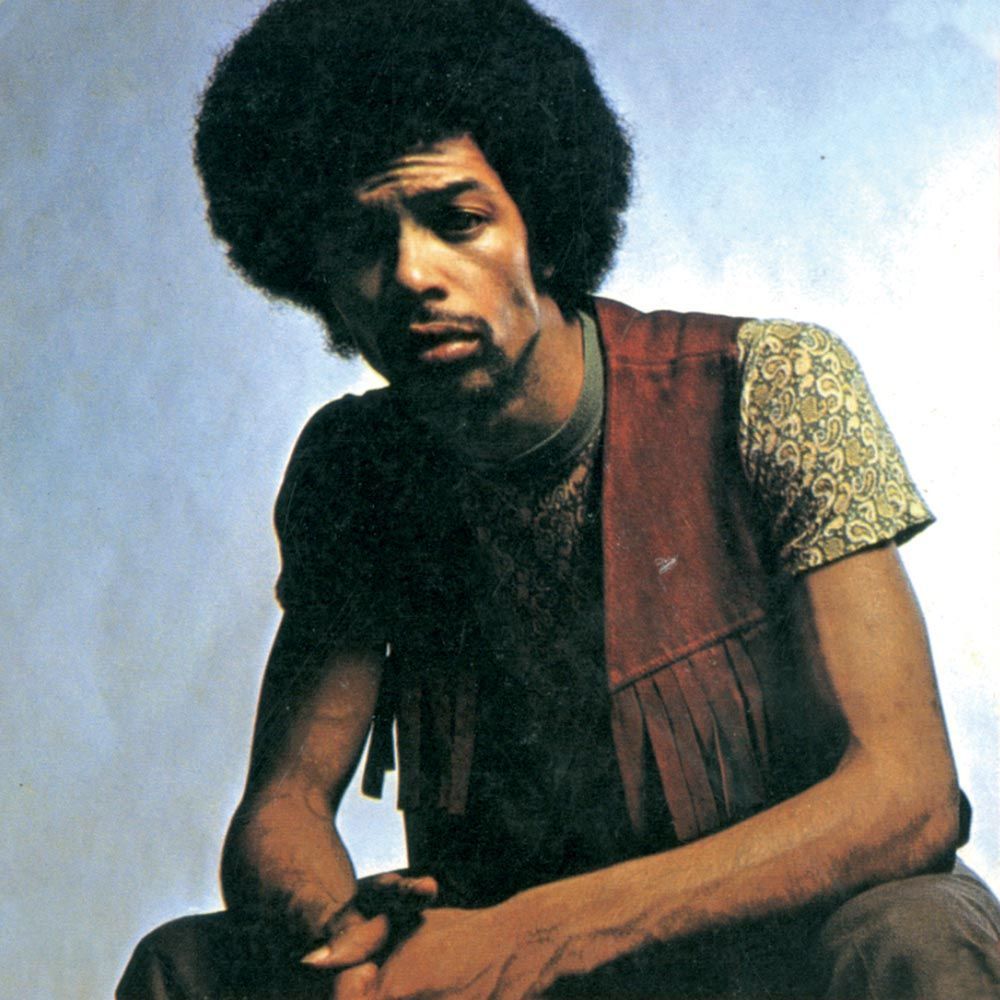I was wondering about our yesterdays,
and starting digging through the rubble
and to say, at least somebody went
through a hell of a lot of trouble
to make sure that when we looked things up
we wouldn't fair too well
and that we would come up with totally unreliable
portraits of ourselves.
But I compiled what few facts I could,
I mean, such as they are
to see if we could shed a little bit of light
and this is what I got so far:
First, white folks discovered Africa
and they claimed it fair and square.
Cecil Rhodes couldn't have been robbing nobody
'cause he said there was nobody there.
White folks brought all the civilization,
since there wasn't none around.
They said 'how could these folks be civilized
when you never see nobody writing nothing down?'
And just to prove all their suspicions,
it didn't take too long.
They found out there were whole groups of people
— in plain sight —
running around with no clothes on. That's right!
The women, the men, the young and old,
righteous white folks covered their eyes.
So no time was spent considering the environment.
Hell no! This here, this just wasn't civilized!
And another way they knew the folks was backwards,
or at least this how we were taught
is that 'unlike the very civilized people of Europe'
these Black groups actually fought!
And yes, there was some 'rather crude implements'
and yes, there was 'primitive art'
and yes they were masters of hunting and fishing
and courtesy came from the heart.
And yes there was medicine, love and religion,
inter-tribal communication by drum.
But no paper and pencils and other utensils
and hell, these folks never even heard of a gun.
So this is why the colonies came
to stabilize the land.
Because The Dark Continent had copper and gold
and the discovers had themselves a plan.
They would 'discover' all the places with promise.
You didn't need no titles or deeds.
You could just appoint people to make everything legal,
to sanction the trickery and greed.
And out in the bushes if the natives got restless
You could call that 'guerilla attack!'
and never have to describe that somebody finally got
wise
and decided they wanted their things back.
But still we are victims of word games,
semantics is always a [ ]:
places once called under-developed and 'backwards'
are now called 'mineral rich.'
And still it seems the game goes on
with unity always just out of reach
Because Libya and Egypt used to be in Africa,
but they've been moved to the 'middle east'.
There are examples galore I assure you,
but if interpreting was left up to me
I'd be sure every time folks knew this version wasn't mine
which is why it is called 'His story'.
Published:
1982
Length:
Regular
Literary Movements:
Black Arts Movement
Anthology Years:
2021
2023
Themes:
Humor & Satire
Memory & The Past
Music & Sports
Racial Injustice
Literary Devices:
Allusion
an expression designed to call something to mind without mentioning it explicitly; an indirect or passing reference
Anaphora
a figure of speech in which words repeat at the beginning of successive clauses, phrases, or sentences
Dialogue
conversation between two or more people as a feature of a book, play, or movie
Interrupted Clause
a word group (a statement, question, or exclamation) that interrupts the flow of a sentence and is usually set off by commas, dashes, or parentheses
Rhyme
correspondence of sound between words or the endings of words, especially when these are used at the ends of lines of poetry
Sarcasm
the use of irony to mock or convey contempt

